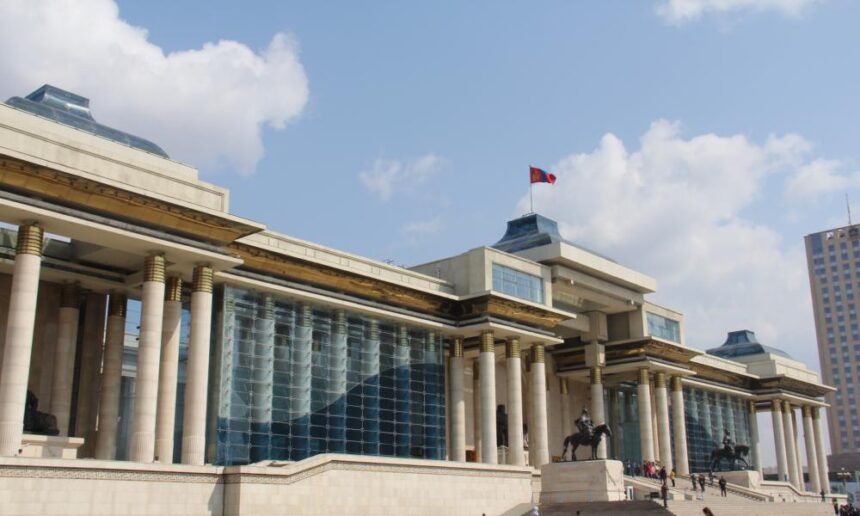The public budget is a mirror that reflects how well a government is running the country. It has been 15 years since the capabilities of Mongolian governments were weakened due to unqualified individuals sneaking into the government and repeatedly making significant changes to an approved budget using the fancy word “amendment”.
Led by their greed to become a minister, our lawmakers “amended” the constitution in 2000, which resulted in Mongolia having not one, but 76 ministers of finance who started indulging in a habit of changing the public budget twice a year.
Starting from this year, their habit has become their character. It looks like Ch.Saikhanbileg’s cabinet, ministers who all wear a “double deel”, will set a new record by making three amendments to the public budget within six months. The newly appointed finance minister claimed that there was no other way, during the Mongolia Economic Forum.
It is time to analyze why the public budget is made abstract, what consequences it bears, and how it could be turned into something concrete. When doing so, we need to have a wider discussion where we all can take on an active role instead of looking at the budget through the eyes of politicians who are ready to do anything to get re-elected.
CURRENT VIEW AND SHORT-TERM OUTLOOK
Both demand and prices for commodities such as coal and copper were high in 2013. During that time, Mongolia’s economy grew by 11.5 percent in 2013, and by 7.7 percent in 2014. However, the International Monetary Fund (IMF) has recently predicted that the growth of our economy is likely to go down to four percent due to decreased demand and reduced prices.
Loans are likely to be restricted as commercial banks have fewer demands and an increased amount of bad and expired loans.
The trade deficit is growing, while the exchange rate reached 2,000 MNT for one USD. For these reasons, inflation is likely to increase and Mongol Bank’s foreign-exchange reserves are to be reduced. The budget deficit still remains huge.
Having taken account of the Development Bank’s loan, including commercial loans, it was expected that the budget deficit would be around eight percent of GDP. However, the actual deficit has already grown larger. That is why the Minister of Finance is proposing another amendment.
The government issued a guarantee for the repayment of Development Bank’s loan. Therefore, international norms should be followed and all risks must be regarded as budget expenditure.
The government is continuing its current macroeconomic policy. The future remains uncertain for the Oyu Tolgoi and Tavan Tolgoi projects. Coal and copper prices are still low. Also, some difficulties could arise for some huge loans in the private sector to be repaid. If you take these factors into account, it looks like Mongolia’s balance of payments deficit is likely to increase, and potentially continue growing to equal the current reserves of Mongol Bank.
If Mongolia’s trade deficit equals the current reserves of our central bank, Mongol Bank will have to increase the size of its swap agreement with the central bank of China. Or, the mega mining projects need to be started. If any of the mega projects start, a small economy like ours would significantly improve.
However, the negotiations around moving the long-delayed Oyu Tolgoi and Tavan Tolgoi projects forward have not been finalized. The likelihood of substantial positive changes occurring for Mongolia’s economy is low, as China’s economic growth decreases and the global financial market remains unstable.
WOULD A RESERVE PARACHUTE BE DEPLOYED?
The government is implementing policies to reduce the budget deficit by recognizing the external and internal situations, restrict price stabilization programs from Mongol Bank, support exports, reduce imports, and mitigate the pressure being exerted on vulnerable social groups.
The government’s external and internal debts are increasing. Mongol Bank set a requirement that commercial banks must have a minimum owner’s equity of 50 billion MNT by the end of 2017. Nevertheless, in order to slow down the economic decline and make sure the landing is smooth, there is a need to further tighten macroeconomic policy.
If a government loses its liquidity and no longer has turnover capital to provide salaries to doctors, teachers, and police officers, they will have to go to the IMF for an emergency loan.
This move is considered the “reserve parachute” because it is a last resort measure that requires great discipline, as the money will be taken out of taxes paid by other countries.
According to Article IV of Mongolia’s agreement with the IMF, the IMF exercises surveillance over the exchange rate policies of its member countries and support them in conducting their budgetary policy by providing technical assistance and emergency loans when required. Every member country has a special drawing right, which has its valuation.
Mongolia joined the IMF in 1991. Last week, the parliament approved the decision from the government to increase Mongolia’s quota in the IMF from 51.1 million USD to 72.3 million USD. In order to do that, Mongolia will have to pay eight million USD to the IMF.
However, there have not been any negotiations yet about Mongolia exercising this right and acquiring another loan with special conditions just like we did in 2008. During the 2015 spring meetings of the IMF and the World Bank in Washington D.C. last week, I had an opportunity to speak about this with Christine Lagarde, the Managing Director of the IMF.
The IMF currently supports Mongolia in conducting a policy for higher growth and greater benefits to people by improving its investment environment, supporting competitiveness, and diversifying the economy. In a recent report, the IMF emphasized that smart management of natural resources is especially important for Mongolia’s economy to grow.
For a country like Mongolia, where abstract budgets are developed first and amended later, an IMF loan that requires great discipline, and that has tough conditions, would produce the best outcomes in ensuring that our economy is landed smoothly and goes in the right course in the future.







